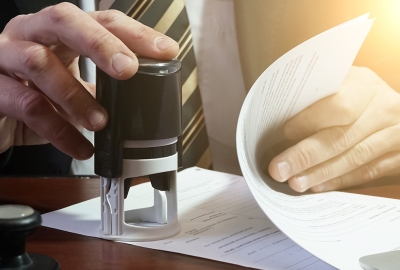Why Real-World Brands ™ Make Bad Registered ® Trademarks
You’ve picked out the perfect name for your new business, one that describes the services you will offer to a tee and will make it easy for your consumers to relate and remember you. When it comes time to protecting the brand, your trademark attorney tells you there are no existing applications or registrations in the United States Patent & Trademark Office (“USPTO”) database that might create a likelihood of confusion, but your mark still might not be registrable on the Principal Register. Why? The doctrine of descriptiveness.
The brands that make the best trademarks are those that are fanciful, suggestive, or generally have no existing or known meaning on their own. Examples of these include registered trademarks such as Nike®, Xerox® or Apple®. Nothing about those marks at the time of their application meant athletic apparel, office machine solutions or mobile phones and accessories. At that time, these marks would have made for strong trademark registrations on the Principal Register.
Contrast those marks with the following hypothetical marks: “Tire Shop” used with a tire store, and “Tee Shirt Xpress” used with a fast way to order a custom t-shirt. Although these marks may be great brands to the businesses they represent, they will most certainly be rejected by the USPTO on the grounds that they are merely descriptive. As the phrase suggests, registration may be refused if the applied-for mark merely describes a feature or characteristic of the applicant’s goods and/or services. “A mark is merely descriptive if it describes an ingredient, quality, characteristic, function, feature, purpose, or use of an applicant’s goods and/or services.” (Trademark Manual of Examining Procedure §1209.01(b)).
Sometimes trademarks contain fanciful or suggestive words along with descriptive words. Those types of trademarks are permitted registration on the Principal Register, but the applicant must disclaim exclusive rights to the descriptive portion of the mark outside of the use with the mark.
The overarching public policy reason behind rejecting descriptive trademarks or exclusive rights to descriptive portions of trademarks is to not hinder competitive commerce. There are only a finite number of ways to describe certain basic goods or services, and no one person should have exclusive rights to such basic descriptions to the detriment of others. Using our examples above, if someone were to register “Tire Shop” for a place that sells tires, that registrant could conceivably stop every other tire shop that uses that phrase from using that mark.
Not all is lost, however. Descriptive trademarks are permitted registration, but only on the Supplemental Register, not the Principal Register. Those marks are still afforded use of the ® symbol and entry in the main USPTO searchable database. We will discuss in greater detail the differences between the two USPTO registries in a future article.
Your trademark attorney should advise you of potential barriers to registration, including descriptiveness. In practice, this issue is often not as straightforward as the examples used above, rather it can be a nuanced analysis of the wording of the trademark as compared to the class description. We are happy to answer any questions that you may have with this issue or any others in connection with a possible application or maintenance of your existing trademark portfolio. Please reach out to the author of this post or any member of the Rich May team that you are currently working with.
Disclaimer: This summary is provided for educational and information purposes only and is not legal advice. Any use of brand names herein, real or fictional, are for educational purposes only. Any specific questions about these topics should be directed to attorney Arvid von Taube.


